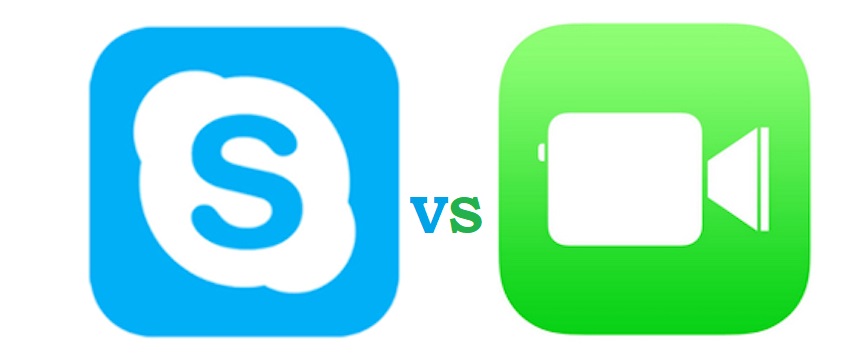Telemedicine is reshaping the healthcare industry and the choice of video communication tools has become a critical decision for medical professionals. With Skype and FaceTime often at the forefront of this conversation, doctors are increasingly questioning which platform offers the best combination of ease, security, and compliance. This expanded guide sheds light into Skype vs FaceTime, HIPAA compliance concerns, and practical use cases while answering the most frequently asked questions about Skype vs FaceTime for doctors.
Why Video Conferencing Is Essential for Doctors
The rise of telemedicine has made video conferencing an integral part of modern healthcare. Platforms like Skype and FaceTime provide doctors with the ability to:
- Conduct remote consultations, especially for patients in rural or underserved areas.
- Monitor chronic conditions without requiring in-person visits.
- Maintain continuity of care while reducing overhead costs.
However, not all video conferencing platforms are created equal, especially when it comes to healthcare-specific needs like HIPAA compliance, security, and integration with electronic health records (EHRs).
Skype vs FaceTime: Key Features Comparison
Usability
- FaceTime: Designed exclusively for Apple devices, FaceTime provides a seamless user experience for iPhone, iPad, and Mac users. Its intuitive interface requires minimal setup, making it easy for doctors and patients alike.
- Skype: Available on multiple platforms, including Windows, Android, and iOS, Skype offers greater flexibility. However, its interface can feel less streamlined, particularly for first-time users.
Performance
- FaceTime: Known for its smooth video and audio quality, FaceTime is optimized for Apple hardware, ensuring minimal lag or disruptions during calls.
- Skype: While generally reliable, Skype is more prone to occasional lag and freezing, especially on mobile devices.
Security
Both Skype and FaceTime encrypt their communications, but neither is inherently HIPAA-compliant out of the box.
- FaceTime: Apple does not offer a Business Associate Agreement (BAA), which is required for HIPAA compliance. While FaceTime calls are encrypted end-to-end, its use for transmitting protected health information (PHI) is risky without additional safeguards.
- Skype: The free version of Skype is not HIPAA-compliant. However, Skype for Business (E3/E5 versions) can be configured to meet HIPAA requirements, provided a BAA is in place.
HIPAA Compliance: The Deciding Factor
What Is HIPAA Compliance?
The Health Insurance Portability and Accountability Act (HIPAA) sets strict guidelines for protecting patient information. Any platform used for telemedicine must ensure that:
- Only authorized users can access PHI.
- All communications are encrypted and secure.
- A BAA is signed between the provider and the platform vendor.
Can You Use FaceTime for Telemedicine?
FaceTime can only be used for telemedicine if:
- You obtain explicit patient consent to use the platform.
- You limit the transmission of PHI and ensure no sensitive information is stored or shared.
Can You Use Skype for Telemedicine?
Skype for Business offers HIPAA-compliant packages, provided you:
- Activate access controls and encryption.
- Sign a BAA with Microsoft.
- Train staff to use the platform in compliance with HIPAA regulations.
Skype vs FaceTime for Doctors: Which Is Better?

Pros and Cons of FaceTime
Pros:
- Seamless integration with Apple devices.
- Intuitive and easy to use.
- Excellent video and audio quality.
Cons:
- Limited to Apple users.
- No BAA or built-in HIPAA compliance.
Pros and Cons of Skype
Pros:
- Available on multiple platforms.
- HIPAA-compliant options available (Skype for Business).
- Additional features like file sharing and chat integration.
Cons:
- Requires configuration for HIPAA compliance.
- More complex setup compared to FaceTime.
Recommendations for Doctors
When to Use FaceTime
FaceTime is suitable for:
- Non-clinical communication with colleagues or patients.
- Situations where PHI is not being transmitted.
- Practices that primarily use Apple devices.
When to Use Skype
Skype (specifically Skype for Business) is better for:
- Telemedicine involving PHI transmission.
- Practices with diverse device ecosystems.
- Doctors who require HIPAA compliance and advanced features.
Alternatives to Skype and FaceTime
While both Skype and FaceTime have their strengths, dedicated telemedicine platforms like Zoom for Healthcare, Doxy.me, and Teladoc Health offer superior compliance, functionality, and integration for medical practices. These platforms provide:
- Built-in HIPAA compliance.
- Scheduling and billing tools.
- Seamless integration with EHR systems.
Top FAQs Related to FaceTime vs Skype
Is Skype Better Than FaceTime?
The answer depends on your practice’s needs. While both platforms excel in certain areas, Skype offers more versatility for professional use, particularly in healthcare settings. Here’s how they compare:
Skype Strengths:
- Available across multiple platforms (Windows, macOS, Android, and iOS).
- Offers HIPAA-compliant options through Skype for Business (if a Business Associate Agreement is in place).
- Includes professional tools like file sharing, chat integration, and screen sharing.
FaceTime Strengths:
- Exceptional video and audio quality optimized for Apple devices.
- Intuitive and simple interface, especially for less tech-savvy patients.
- Seamless integration with iPhone, iPad, and Mac ecosystems.
Verdict:
Skype is better for practices with diverse device ecosystems or those needing HIPAA compliance. FaceTime is more suitable for casual, non-clinical communication or for practices exclusively using Apple devices.
Why Would Someone Want to Use Skype Instead of FaceTime?
While FaceTime is known for its ease of use, Skype offers features that make it a stronger choice for professional and telemedicine purposes.
Advantages of Skype Over FaceTime:
- Platform Flexibility: Skype works across Windows, Android, and iOS, ensuring compatibility regardless of the patient or doctor’s device.
- HIPAA Compliance Options: Skype for Business (now part of Microsoft Teams) can be configured to meet HIPAA requirements. FaceTime, on the other hand, does not provide built-in compliance.
- Professional Features: Skype includes tools like file sharing, chat options, and scheduling capabilities, which are essential for telemedicine workflows.
- Group Meetings: Skype supports larger group calls, making it ideal for multi-party consultations, such as involving family members or additional specialists.
For practices seeking a professional-grade platform, Skype offers more flexibility and functionality than FaceTime.
Why Is FaceTime Not HIPAA Compliant?
While FaceTime encrypts communications end-to-end, it is not inherently HIPAA-compliant because Apple does not offer a Business Associate Agreement (BAA). Without a BAA, healthcare providers cannot legally use FaceTime to transmit or store Protected Health Information (PHI) under HIPAA regulations.
Key Issues:
- No Signed BAA: HIPAA requires a signed agreement between the provider and the platform vendor to ensure data protection. Apple does not provide this agreement.
- Data Storage Risks: Although FaceTime encrypts calls, it does not guarantee that metadata or related information won’t be accessible in ways that violate HIPAA.
FaceTime can only be used for telemedicine if explicit patient consent is obtained and PHI is not stored or transmitted through the platform.
Can FaceTime Be Used for Telemedicine?
Yes, FaceTime can be used for telemedicine under specific conditions, but it comes with limitations. Here’s what you need to know:
How to Use FaceTime for Telemedicine:
- Obtain Patient Consent: Before using FaceTime, healthcare providers must inform patients about the risks and secure written consent.
- Avoid Sharing PHI: Do not transmit sensitive health information or medical records via FaceTime.
- Temporary Use During Emergencies: In exceptional situations, such as public health emergencies, the Office for Civil Rights (OCR) may relax enforcement of HIPAA rules, allowing the temporary use of FaceTime for telemedicine.
Limitations:
FaceTime is not ideal for regular telemedicine because it lacks advanced features like secure file sharing, scheduling tools, and robust compliance measures.
Skype vs FaceTime for Doctors
When comparing Skype and FaceTime for doctors, it’s essential to consider specific use cases, device ecosystems, and compliance requirements.
Key Factors to Consider:
- Device Ecosystem: Use FaceTime if your practice exclusively uses Apple devices. Opt for Skype if your patients or staff use multiple platforms.
- HIPAA Compliance: For telemedicine involving PHI, Skype (with a BAA) is the safer choice.
- Additional Features: Skype’s professional tools, such as group calls, chat integration, and file sharing, give it an edge for healthcare applications.
What Are the Top 6 Alternatives to Skype and FaceTime?
While Skype and FaceTime are popular, dedicated telemedicine platforms often offer better compliance, features, and integration for healthcare providers. Here are the top alternatives:
1. Zoom for Healthcare
- Why It’s Better: Offers HIPAA-compliant options, robust video conferencing tools, and seamless scheduling integration with EHRs.
- Best For: Large practices or providers needing advanced collaboration tools.
Read more about EHR vs EMR in detail.
2. Doxy.me
- Why It’s Better: Specifically designed for telemedicine, with built-in HIPAA compliance and no app downloads required for patients.
- Best For: Solo practitioners or small practices.
3. Teladoc Health
- Why It’s Better: A comprehensive telemedicine platform with integrated billing, prescription management, and patient portals.
- Best For: Providers looking for an all-in-one solution.
4. Microsoft Teams (Healthcare Version)
- Why It’s Better: Combines video conferencing with document sharing, chat features, and HIPAA compliance under Microsoft’s BAA.
- Best For: Organizations already using Microsoft 365.
5. Google Meet (With Workspace for Healthcare)
- Why It’s Better: Secure video conferencing with HIPAA compliance for organizations using Google Workspace for Healthcare.
- Best For: Providers familiar with Google’s ecosystem.
6. Amwell
- Popular among large healthcare organizations.
- Offers built-in HIPAA compliance and support for multi-specialty practices.
Can I Use WhatsApp for Telehealth?
Technically, WhatsApp offers end-to-end encryption, but it is not HIPAA compliant for the following reasons:
- No BAA is available.
- Messages and call data can still be accessed or backed up to insecure platforms.
- There are no audit controls for tracking access to patient information.
Recommendation: Avoid WhatsApp for telehealth and opt for HIPAA-compliant platforms.
Can I Use Online Video Streaming Platforms for Telehealth?
Platforms like Zoom (general version), Google Meet, or Microsoft Teams (non-healthcare versions) are not inherently HIPAA compliant unless specific configurations are applied:
- Zoom (Free/Basic): Lacks the BAA required for HIPAA compliance. Use Zoom for Healthcare instead.
- Google Meet: Can be configured for HIPAA compliance if used with Google Workspace for Healthcare.
- Microsoft Teams (Standard): Not compliant unless the healthcare package is activated.
Conclusion: Only use platforms that explicitly support HIPAA compliance for telehealth.
What Are the Top 15 HIPAA-Compliant Telehealth Platforms?
Here is a quick list of the best HIPAA-compliant telehealth platforms for medical professionals:
- Zoom for Healthcare
- Doxy.me
- Teladoc Health
- Amwell
- Microsoft Teams (Healthcare Version)
- SimplePractice
- Mend Telemedicine
- Spruce Health
- VSee
- Updox
- Cisco Webex for Healthcare
- CareClix
- eVisit
- OnCall Health
- Clocktree
Conclusion
Choosing between Skype and FaceTime for doctors depends on your specific needs, including device compatibility, HIPAA compliance, and telemedicine features. While FaceTime is a great option for non-clinical communication and Apple-exclusive practices, Skype offers greater flexibility, professional tools, and compliance options for healthcare providers.
For doctors seeking to elevate their telemedicine services, exploring dedicated platforms like Zoom for Healthcare or Doxy.me may provide better long-term solutions. Ultimately, the right platform should prioritize patient trust, data security, and seamless care delivery.
If you are struggling to make a decision about using the right platform. Book a free consultation today and let us handle your queries one by one.




